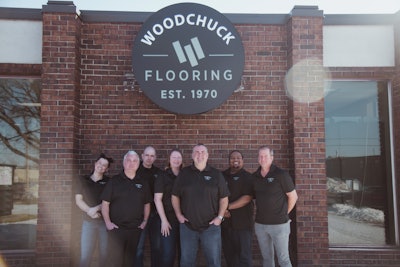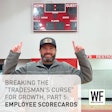

So how did I go from owner-operator in 2008 to 2024 running my company like a CEO with more energy, more free time and a great work life balance? Here are some basic lessons I learned:
1) Take a step back and ask the hard questions
What do you really want? Is it more family time, more vacation, fewer headaches? What is your vision?
A truly successful business is founded on the principle that everything works without the owner’s involvement, not because of it. If you go on vacation for two weeks, what happens? What do things look like when you return?
How’s your business structured? Who is in charge of HR, who is in charge of marketing, who is in charge of customer service? If you are doing everything, your business doesn’t actually have any structure, and you are likely doing jobs that you are not really qualified for. You need to begin changing your mindset from doing it all to managing it all
RELATED: How We Grew Our Store But Kept Its 'Family' Culture
2) Outsource - delegate – reward
Not all at once, but over time, build your team. Keep your best people. And I mean your best people, not your most skilled people. The most skilled person that ever worked for me was hard to lose, but it was the greatest relief I ever felt. That person was toxic, hard to work with and just plain-old not nice. If you hire the right people, you can teach them to have the right skills—it doesn’t work the other way around.
If your best guy wants more money, give it to him. Then give him more responsibility. It is hard to find good people, and hiring is probably the most costly thing a company can ever do, both in terms of time, resources and cash.
Treat your people well and they will remain loyal. And that doesn’t necessarily mean pay them more. Let them know when they have done well. Tell them you appreciate them, and show them you appreciate them. I once couriered six cases of beer to one of my staff member’s homes. They felt great, and more importantly, they will remember it forever.
3) Leverage technology
I currently do most of my work remotely from home. I wrote this article from my home office. We no longer write checks. Everything possible is done electronically.
In 2008, when the security alarm went off at 2 a.m. I would get in my truck and drive 30 minutes to the office. Now I open my cell phone, check the cameras and go back to sleep. I can lock and unlock the doors of my shop from my cell phone. Automate whatever you can.
It took almost 16 years. It was hard work, but in the end it was worth it. What’s your vision?
RELATED: Retail Excellence: The Winners of the First WFB Outstanding Retailer Awards
































